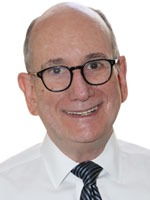Teiwaz Lawyer
Book Review: The Way of the Trial Lawyer – Beyond Technique
Rick Friedman (Published by Trial Guides)
I have periodically shared information with readers about new books. I do it only when I come across a book that I believe will have a significant impact on the trial lawyer members of CAALA. Rick Friedman’s The Way of the Trial Lawyer – Beyond Technique, is one of those books.
If you are familiar with Rick Friedman, then you know that last statement is redundant; every Rick Friedman book has a significant impact on trial lawyers.
His previous books are Rules of the Road: A Plaintiff Lawyer’s Guide to Proving Liability (with Patrick Malone), Polarizing the Case: Exposing and Defeating the Malingering Myth, The Elements of Trial (with Bill Cummings), and Becoming a Trial Lawyer: A Guide for the Lifelong Advocate. There are hundreds of books written each year for trial lawyers, but it is no coincidence that the ones most sought by attorneys, both old and young, are written by Rick Friedman.
Friedman is a great author, but above all he is a great trial lawyer. His practice is based in Bremerton, Washington, but he tries cases all over the country. Through his articles, lectures, and books, we also know him to be a mentor, a thinker, a teacher, a philosopher, a visionary, and a very wise man.
Friedman’s previous books focused on trial tips, strategies, and techniques. This book is different. It addresses the demons and doubts faced by every trial lawyer and it describes and defines the ways of the ideal ones. He describes the book’s purpose in one paragraph: “As the values in our country evolved, law stopped being a profession and became a business. At present, we lack a commonly held set of values, a common understanding of the trial lawyer’s place in the community, and any direct guidance for the trial lawyer trying to live a life of purpose and integrity.”
Friedman later adds “It is my hope that this book will provide guidance, direction, and nourishment for those who feel a calling to participate in the brutal process that is the American trial. There is a way to effectively participate in this process while claiming our human birthright of compassion, courage, and love: while living with purpose and integrity, while growing health and strength in ourselves and those around us. But it isn’t easy. It is the way of the trial lawyer.”
Friedman adds: “I hope this book provokes thought and discussion about how we live our lives as trial lawyers. If it does that, I will consider it a success. But I hope it does more; I hope it helps you become a better trial lawyer.”
Friedman’s book can be read straight through in one sitting, or a little at a time, going randomly from one chapter to another. The 46 short chapters combine specific trial tips and suggestions with discussion and analysis of the challenges faced by every trial lawyer. It provides insight and advice regarding judges, jurors, plaintiffs, experts, and defense attorneys. One entire section of nearly 100 pages analyzes every aspect of trial, from voir dire to closing.
Friedman also delves deep into the psyche of the trial lawyer with powerful chapters on topics such as Fear, Control, Losing and Luck. The chapter on Fear addresses the types of fears trial lawyers uniquely encounter. The chapter on Losing includes these words from Friedman: “With every trial they become stronger and more capable. They reject the notion that losing is a sign of a failure of control or a failure of competence. They know that highly competent lawyers lose cases all the time. They learn from their losses, gain strength from their losses, and then move on. They understand that the only way they can truly lose is by betraying their own values.”
In the first few pages of the book, Friedman talks about the book being an “attempt to describe the ideal trial lawyer, or, perhaps, the ideal way to live the life of a trial lawyer.” Friedman needed a word to use when he spoke about the lawyer who attempts to follow that path, to live up to those ideals. The word he chose, and uses throughout the book, is Teiwaz.
Friedman tells us that Teiwaz is a Rune symbol. You may be familiar with Teiwaz and Runes, but I was not. What I learned is that Teiwaz is a Rune of justice and order and represents inner strength, morality, and honor. It symbolizes strength, heroism, duty, and responsibility, and when worn as a talisman, it protects, brings victory, strengthens the will, and helps to heal wounds.
Trial lawyers can take much from this book, not the least of which are the words “Teiwaz Lawyer.” Like the rest of the book, those words describe the characteristics of the ideal trial lawyer and how they can aspire to be better and increase their sense of purpose and satisfaction while traveling the way of the trial lawyer. The book may be for trial lawyers, but the lessons are for everyone.
Stuart Zanville

Stuart Zanville is the Executive Director of the Consumer Attorneys Association of Los Angeles (CAALA). Contact him at (213) 487-1212 or by e-mail: stuart@caala.org.
Copyright ©
2026
by the author.
For reprint permission, contact the publisher: Advocate Magazine
